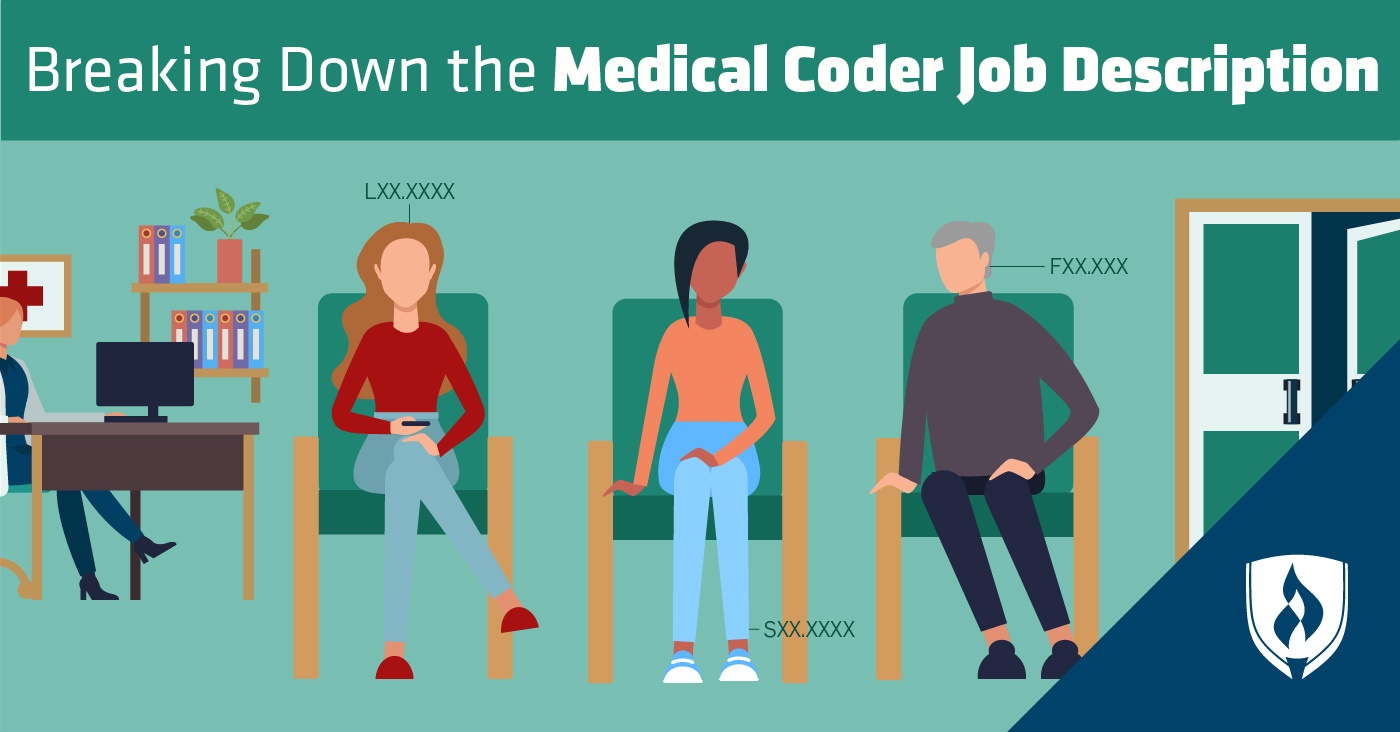
Are you looking for a steady healthcare career that doesn’t require a college experience that runs for years on end? The good news is that you have several solid options—and medical coding is one area that you may find intriguing if you want a challenging and rewarding career in this field. But what does that job entail? How do you get started? You likely have a lot of questions you’d like to get to the bottom of.
To help with answering these important questions, we’ve gathered everything you might need to know about this profession—much more than you can glean from scanning medical coder job descriptions. From salary data to first-hand experiences, we’ve laid it all out—so let’s dive in.
The role of medical coding in healthcare
Medical coding provides a universal system by which providers bill insurance companies and track medical data. This role makes the process of payment significantly more efficient than it used to be. Because each provider and insurance company work with dozens of other providers, government agencies and insurance companies, the process of payment can get complicated. Errors ultimately hurt the patient and can result in denied claims, complicated solutions, inaccurate billing and frustrated patients. Medical coding was designed to keep that from happening. It has become an indispensable part of healthcare, helping hospitals get paid and patients get covered.
Exploring the typical medical coder job description
Discover all the logistics you need to know about becoming a medical coder, including what they do, where they work, and more.
Medical coder job duties
Every time you receive medical care, your treatment is documented. When it’s time for that treatment to be billed, a medical coder will consult your chart and determine a sequence of letters and numbers (literally a medical code) that captures what happened during your visit. Insurance companies then use those codes to determine how much they owe the hospital.
While there are different codes for different care settings, let’s look at a typical example. A knee replacement surgery in ICD-10, a common medical code, would look like this: 0SRC0JZ
- Section: Medical and Surgical Section — 0
- Body System: Lower Joint — S
- Operation: Replacement — R
- Body Part: Knee Joint, Right — C
- Approach: Open — 0
- Device: Synthetic Substitute — J
- Qualifier: No Qualifier — Z
Each place in the code represents an important detail about the treatment process—such as where it happened and what kind of operation was done. Medical coders often use software and databases to locate the correct codes but must keep track of other important details such as different insurance policies.
For example, every insurance company has different requirements for timely filing. This is a policy that states a bill must be filed within a certain number of months after a patient’s visit. Otherwise, a claim will be denied. Other details to keep track of are whether an insurance company requires a procedure to be preauthorized, in which case you will need to include an additional code.
Medical coder work environment
Medical coders work in a variety of places. The most common is in hospitals or clinics, turning charts into code; however, medical consulting firms also handle these traditional tasks from their offices.
Medical coders may be found in law firms and insurance companies, evaluating the validity of codes and claims. Government agencies often employ medical coders to process Medicare and Medicaid claims, but may also enlist their expertise using code data for research purposes. Like most careers, teaching is also an option.
Finally, some medical coders choose to work from home. Though this may be contingent upon work experience, the duties of a medical coder are almost entirely digital, making it an ideal position for potential remote work.
Medical coder skills
Though medical coders may repeat the same tasks frequently, they need a blend of transferable and technical skills to succeed in every aspect of the job. As a medical coder, you will see a lot of sensitive patient information which must be kept confidential. You will also need to be on the lookout for healthcare fraud such as upcoding or unbundling. These subtle changes can add services to a patient’s bill that were not performed or create separate codes to increase the price.
So what else do you need to be successful as a medical coder? We analyzed over 20,000 medical coding job postings in the last year to help answer that.
Top technical medical coding skills1
- Health information technology
- Inpatient coding
- Anatomy
- ICD-10
- Outpatient coding
- CPT coding
- Coding quality
- Physiology
- Clinical documentation
- Medical terminology
Top transferable medical coding skills1
- Collaboration
- Computer literacy
- Research
- Communication
- Microsoft Office
- Attention to detail
- Problem-solving
- Analytical skills
- Meeting deadlines
- Critical thinking
Medical coding education and training
Most medical coding positions simply require that you have a high school diploma and a medical coding certificate, some of which can be completed in as few as nine months2.
As you develop your career, you may choose further certification in specialty field coding is available in areas such as cardiology, emergency care or family practice. Additionally there are opportunities in more advanced Health Information Technician and Health Information Management roles that take on a more holistic view of health information and medical recordkeeping technology.
Medical coding career outlook
The Bureau of Labor Statistics (BLS) reports an employment growth rate of 11 percent for these positions—a rate much faster than average.3
Beyond the medical coder job description
Job descriptions are helpful, but they also don’t tell you much about the day-to-day of a job. For a look behind the scenes, we’ve asked Kayla Meinke, health information specialist at Gillette Children’s Specialty Healthcare, to share her experience.
What do you wish you knew before starting in this industry?
Meinke says one thing she wish she knew prior to entering this role was how often coding practices change. While the broad framework of ICD-10 coding stays relatively steady, there are regular adjustments coders need to keep up with.
“There will typically be changes every year, so it sometimes can feel like you constantly have to relearn how things are coded,” Meinke says.
“On a positive side, I also wish I knew how many different opportunities there are through coding. Had I known, I probably would have liked to have gotten into coding sooner.”
There’s an entire niche industry within the medical field related to medical records and clinical data—and a medical coding role can provide an excellent entry point.
What surprised you about medical coding?
“Something surprising was how specific codes are,” Meinke says. “You have to pay close attention to detail when translating documentation into codes because one missed detail can completely change the code, which is also something that definitely makes it challenging.”
The level of detail found in a medical coding system is pretty spectacular—and wildly specific ICD-10 codes are even a well-known source of humor in the field.
What would healthcare look like without medical coders?
“It would likely be a lot less streamlined,” she says. Without coders, providers would likely have to do a lot more work to communicate with insurance companies—something that could ultimately increase the cost of services.
“Coders are also responsible for maintaining the accuracy and integrity of the billing functions of healthcare providers, which means they hold an important role in proper reimbursement and workflow of a provider's office.”
Is a medical coding job in your future?
Everything worth doing is hard work. But you’ve worked hard before. Why not put your effort toward something that will pay off? With a positive growth rate, median annual salary, and a variety of opportunities, medical coding could be the career you’ve been looking for.
If becoming a medical coder is something you’re interested in, check out our article, “Your 5-Step Guide to Become a Medical Coder”
1Burning-Glass.com (analysis of 20,430 medical coder job postings, Nov. 01, 2018 – Oct. 31, 2019).
2Completion time is dependent on transfer credits accepted and the number of courses completed each term.
3Bureau of Labor Statistics, U.S. Department of Labor, Occupational Outlook Handbook, [accessed March, 2020] www.bls.gov/ooh/. Information represents national, averaged data for the occupations listed and includes workers at all levels of education and experience. Employment conditions in your area may vary.
Most coding positions are not considered "entry level"; a combination of education and work experience is typically required to attain a coding position. Similarly, coders, especially those who are new to the field, should not expect to find a position where they can work from home. Most coding positions require onsite work.




